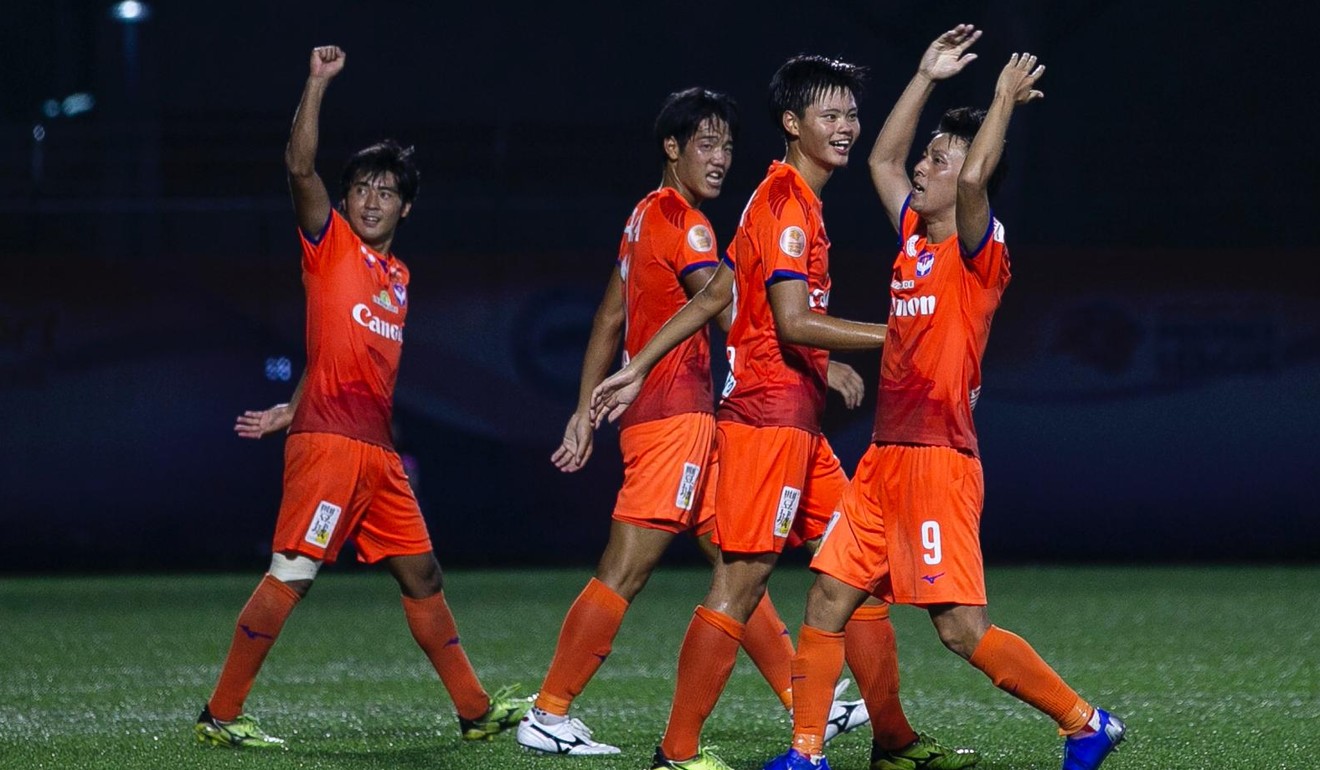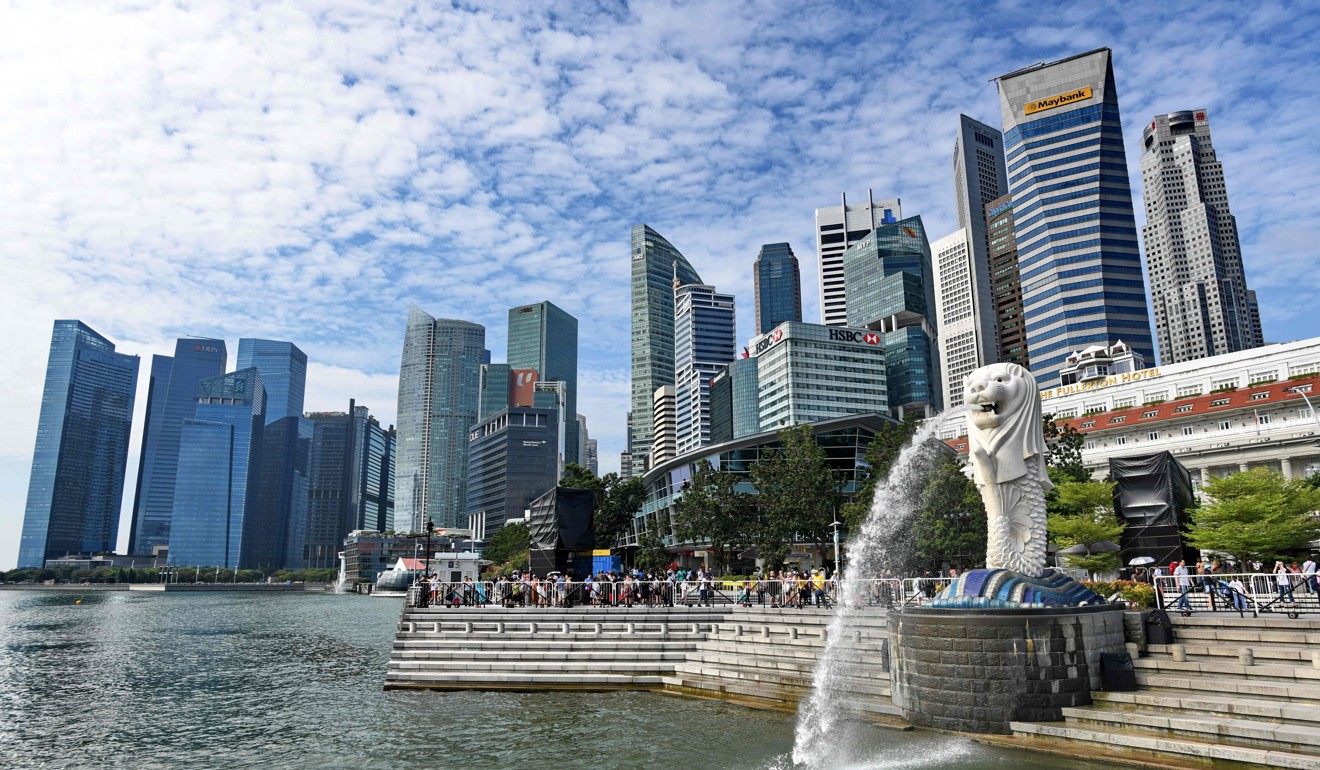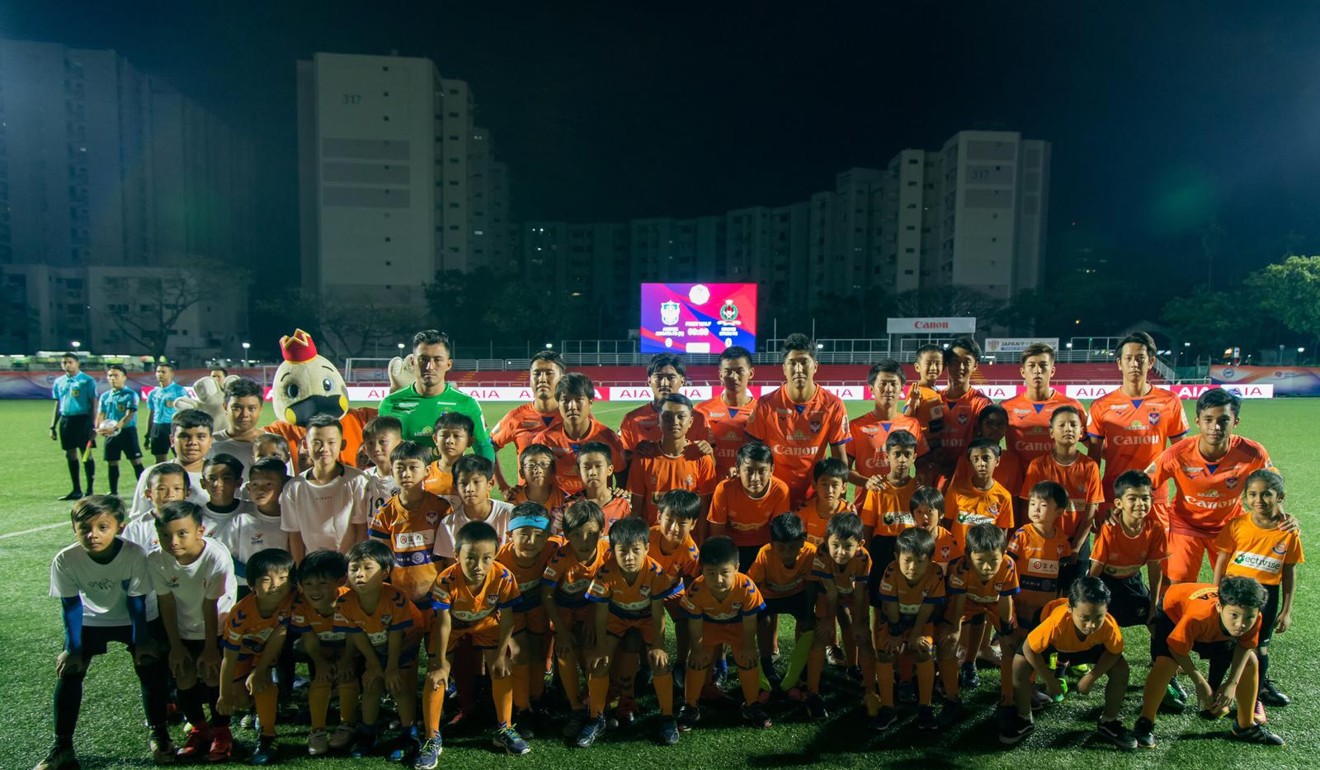
How Japanese club Albirex Niigata scored big in Singapore soccer
- The satellite team has been a huge success in the Singapore Premier League, winning all 11 trophies on offer since 2016 and drawing bumper crowds
- But what does its dominance say about the standard of local football, and how long will the authorities allow it to remain?
In neat rows on black gym mats, they stretch to ready themselves for the two-hour session ahead. “They want you to come very early to get ready for training. You must be very disciplined here,” explains striker Daniel Martens, a player on loan from fellow Singapore Premier League (SPL) side Hougang United FC.
At other clubs Martens, 20, has been at, tardiness is a common issue. At Albirex, however, it rarely happens. If a player arrives late, he is banned from training for the day and made to run rounds.
Martens has been with the club for barely two months, but he is realising these little differences matter. In fact, they are probably why the club is dominating Singapore soccer.
You must be very disciplined here
Last year, they even became the first team in the SPL to go unbeaten for an entire season.
Off the field, the White Swans, as the club are also known, also top the table in terms of attendance, sponsorships and outreach programmes.
Just a decade ago, the club was considered an unexceptional mid-table team, but it has since surpassed local clubs to become one of the best in Singapore’s history, on and off the pitch. What exactly is it doing different?

THE ALBIREX WAY
On the training field, new head coach Keiji Shigetomi has players engaging in a five-a-side match. Each round lasts a mere three and a half minutes. But these are 210 intense seconds – Shigetomi, 39, wants his players to run, and run hard. “If you lose a ball in attack, get the ball back as fast as possible,” he repeatedly tells his players.
Albirex play with a combination of graft and finesse. They play out from defence, stringing together rapid, intricate combinations of passes. When opposing sides have the ball, they press together to win it back.
The club has become known for their crowd-pleasing soccer, and Shigetomi is keen to continue this. The club is regarded as one of the fittest sides in the league, but this style also requires players to be technically proficient in skills such as ball control and passing. Martens describes the intensity of training as much higher than his previous clubs.
“Everything is fast paced and it’s all based on technical work,” he notes. They even train in the mornings on match days, something most local clubs avoid because of Singapore’s hot weather.
But at Albirex, quality on the ball is not enough. Having the requisite character is key, especially when you are living as a professional soccer player overseas.
Players lead regimented lives. After morning training, they return to their accommodation at Parc Oasis, a condominium block a 10-minute walk from the stadium. They cook their own meals and rest in the afternoons. In the evenings, they head to the gym or attend training, after which they clean their own equipment.
The discipline has been transmitted to the field. In the past eight seasons, the club has won the Fair Play Award six times.

Having a squad that lives and trains together helps, notes local soccer critic R. Sasikumar. He adds that there is a lot more at stake for these players as well: “They leave Japan to pursue football, as most will never make it there. This is a second chance for them, and they’re not going to mess it up.”
People need to look to us on and off the field as an exemplary club
Almost the entire squad has been hand-picked by Albirex’s hands-on chairman, Daisuke Korenaga, who scours universities and club sides across Japan for those who embody the “Albirex Way” – good behaviour, and good soccer.
“Although we’re called Albirex Niigata Singapore, we’re also representatives of Japan at the same time,” he says.
“People need to look to us on and off the field as an exemplary club.”
THAT WINNING FEELING
When Korenaga, 42, took over in 2008, Albirex was mired in mid-table mediocrity. In the three seasons before he joined, the club finished no higher than fifth in a league that consisted of 10 to 12 clubs.
The club had entered the SPL – then known as the S.League – in 2004 after the Football Association of Singapore (FAS) decided to invite foreign clubs to revitalise the league, which was suffering from poor attendance.
He looked for sponsors, mostly approaching Japanese companies based in Singapore. More than 50 such companies now sponsor Albirex – the likes of Canon and Mizuno among them – to the tune of more than S$500,000 a year.
In comparison, an average SPL club would be lucky to have more than five sponsors. Some do not even have any. However, local sides enjoy subsidies from the FAS, which amounted to S$1.01 million each last season.
As a foreign club, Albirex only receives half the amount. With the average cost of running the club about S$1.3 million a season, sponsors are its financial lifeline.
But with sponsors comes the need to attract fans, and fan engagement is an area where the club has also excelled. On match days, the atmosphere at the Jurong East stadium is rapturous. Seats are mostly filled with the families of Japanese expatriates. Vociferous chants fill the stadium, in rhythm to pounding drums.
As each Albirex player emerges onto the pitch, they are serenaded by a troupe of cheerleaders – specially trained at the club’s Cheer Dance School. It is the only one in the SPL to have a dedicated cheerleading school, with an enrolment of more than 400 women ranging from toddlers to adults. It also has a soccer school of more than 500 boys, most of whom are Japanese.
Aiming for a younger target audience is part of the plan to draw crowds to matches. “When these children attend our matches, the families will come along as well,” explains vice-chairman Koh Mui Tee.
It has clearly worked. In a league where attendance has been diminishing in recent years, with the average crowd at an SPL match numbering in the mere hundreds, Albirex is flourishing – the club saw a turnout of more than 1,600 spectators at each fixture last season.
With strong foundations established, the club focused on soccer. They made a steady climb up the table: seventh in 2008, third in 2012, and champions in 2016. They have not relinquished the title since.
“Over the years, our players got used to the league. We understood how to win. It takes time – it’s not an overnight process,” Koh says.
But is this also a damning indictment of the state of Singapore soccer? The two clubs topping the table this season are the league’s pair of foreign teams – Albirex and Brunei DPMM.

Describing the SPL as having a “culture of mediocrity”, former Straits Times sports editor Marc Lim says there is no real ecosystem for Singapore soccer. “There are only nine teams in our league and the fact that the only two foreign clubs are considered the two best sides says a lot about us. These teams seem to be checking all the boxes in everything, not just from a footballing standpoint but also in terms of fan engagement and crowd attraction.”
It’s the rest of [Singapore’s] clubs that are not setting the standard
Sasikumar, the sports critic, brands the situation an “embarrassment”. “We can’t just blame the players. The whole environment is so toxic,” he says. “Albirex is not doing anything extraordinary. It’s just operating like a football club should. It’s the rest of the clubs that are not setting the standard.”
GOING LOCAL
Despite its unprecedented success, Albirex still faces challenges. As a foreign club, there are occasional calls for its removal from the SPL; it keeps all its players on a one-year contract, as the authorities may decide to boot them out of the league at any time.
“Some people don’t want us to join the SPL, because they believe that the league must only have Singapore clubs. So we have to show our responsibility to the local community,” says chairman Korenaga.
The Yuhua Community Sports Club (CSC) – a government-backed group that organises grass roots sports activities – is one of Albirex’s key partners, and has been for the past seven years. Besides co-establishing a local soccer academy for children, Albirex has donated the likes of medical equipment to the club, and organises outreach days such as players washing blocks of flats or distributing rice to the needy.
It also donates a dollar to Yuhua CSC for every supporter who attends their home games – a figure that has amounted to over S$100,000 in the past six years. “They are very sincere in their outreach and efforts to engage with the local community,” says Yuhua CSC’s chairman Lim Chock Sing.
This season, Albirex has found it tougher as they adapt to changes. Besides having a new coach, only four players remain from last season’s all-conquering team. The FAS has also introduced regulations this season stipulating that all club sides must start at least two local players in every match.
Coach Shigetomi’s debut in Singapore soccer ended in defeat as Albirex lost to Home United in the Community Shield – a non-competitive trophy. After 10 matches, they have already suffered two league defeats this season.
But the new team is showing signs of gelling; they have won five of their last seven matches and lie third in the table. Shigetomi is confident about their chances of retaining the title.
“Of course we want to get the title again,” he says. “But it’s a different season this year. We will continue doing the hard work. We have to keep trying.” ■

